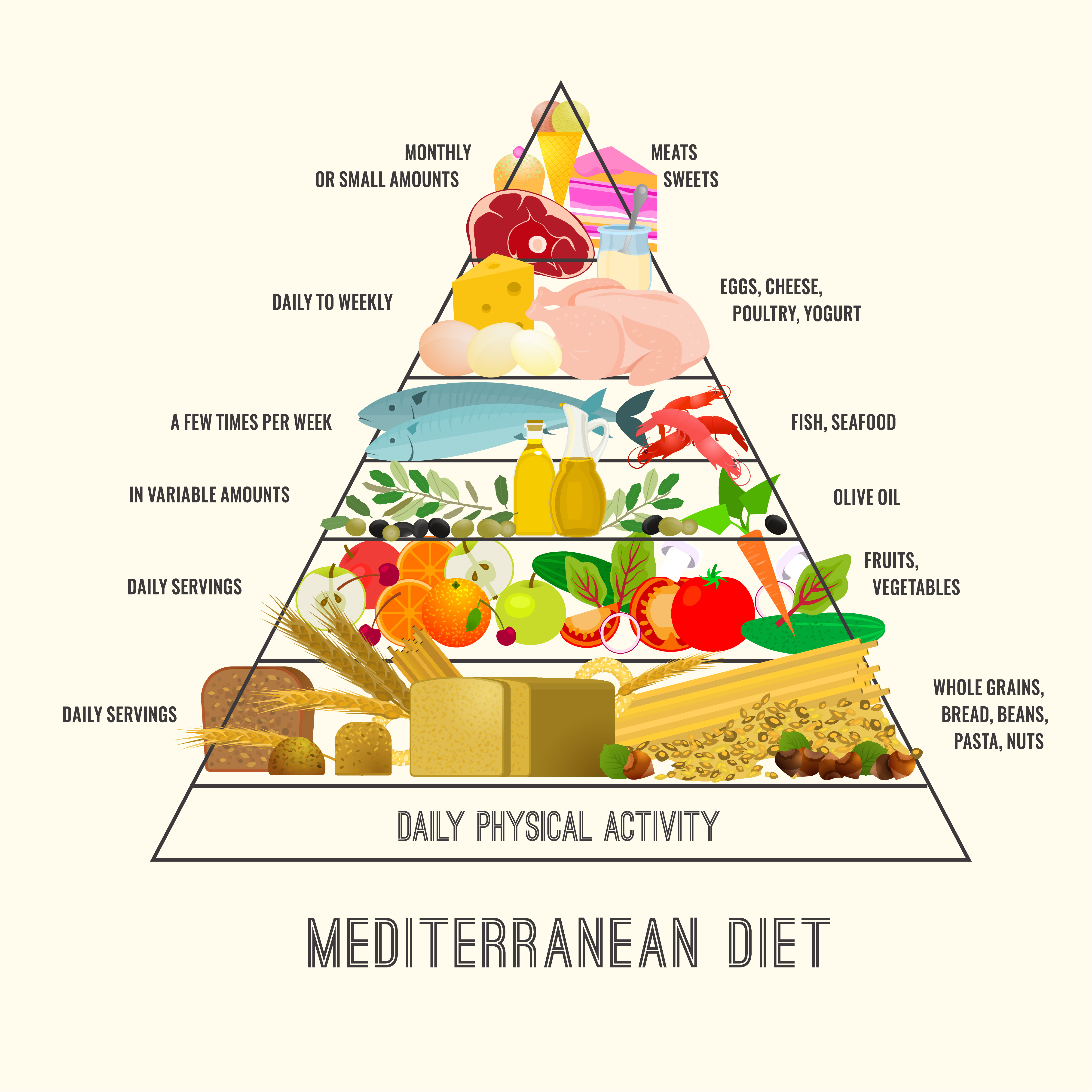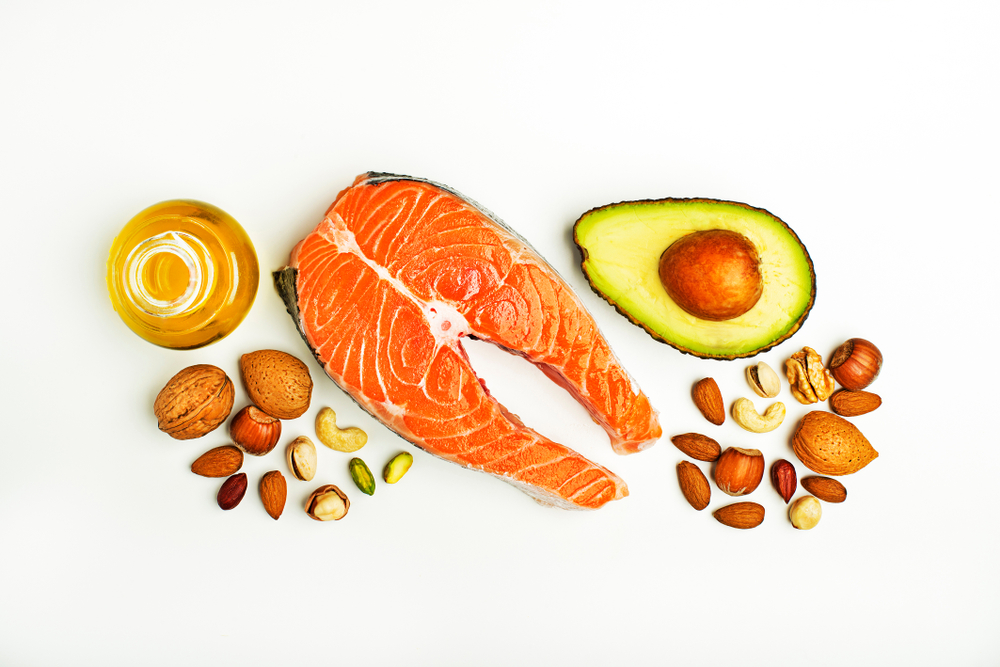Anyone interested in their diet, health and wellbeing may have heard a lot about the Mediterranean diet. Anyone who has experienced some health issues for example high blood pressure, stroke or stroke risk and diabetes, and have received dietary advice may also have heard about the Mediterranean diet. The Mediterranean diet has received a lot of press over the years and more so recently, so you only have to read the newspaper to see many different people advocating a Mediterranean diet is good for our health. But what exactly is a Mediterranean diet and why is it supposed to be good for our health?
What is a Mediterranean diet?
The Mediterranean diet, it could be argued, is not just about food, it’s more like food and a certain lifestyle. How can lifestyle effect our wellbeing? The concept of a Mediterranean lifestyle encompasses a variety of different actions. The warmer climate in Southern Europe does help with certain aspects of the way of life of the people who live there.
Lifestyle is important
Take for example exercise, it can sometimes feel easier to exercise when the weather is warm and sunny, however it can get very hot in the summer time in Spain, Italy and Greece for example. In the UK, whilst the weather is more unpredictable, just getting outside and exercising can bring many health benefits, especially being in nature such as woodland is proven to improve mental health and overall wellbeing. According the Mind, the mental health charity, spending time outside in a green environment and brining nature into everyday life can benefit both physical and mental wellbeing (Mind, 2018)
Another aspect of the Mediterranean lifestyle, is about eating together a family. Sitting down to at least one meal a day as a family around the table, without any distractions such as mobile phones, can help with family dynamics and relationships, set a good example to younger members of the family that eating at regular times has benefits and setting aside a set time to eat helps with digestion.
Fresh ingredients, not processed are best
Cooking food using fresh ingredients carries many health benefits and does not have to be complicated or time consuming. Whilst everyone is leading more frenetic lifestyles including those people leaving in the Mediterranean, taking some time out to cook meals from scratch is much healthier than eating processed fast food. Typically, our friends in the Mediterranean are better at doing this, than us in the UK. Why is that? Maybe this behaviour is learned from older generations who play important roles in the family dynamic long into old age.
Fresh fruit and vegetables
When it comes to the types of foods eaten in Southern Europe we hear that it includes lots of fresh fruit and vegetables. Fresh fruit and vegetables contain high levels of many nutrients including vitamins A, B complex, C, E and K and minerals such as iron, calcium, zinc, magnesium and selenium. All of these vitamins and minerals are key to maintaining good health such as a strong immune system, wound healing, strong teeth and bones, healthy nervous system healthy skin, hair and nails.
Fresh fruit and vegetables are an excellent source of antioxidants which help reduce inflammation and remove free radicals from our body.
Healthy fats and plenty of fibre
Olive oil production is common in some Mediterranean countries such as Greece and Italy. Olive oil is a more than 70% monounsaturated fat, which is good for heart health and keeping blood pressure under control as it is able to increase circulating good cholesterol HDL and help reduce the risk of blocked arteries, which can lead to heart attack and stroke. Olive oil is regularly used in food preparation in a Mediterranean diet.
Another good source of healthy fats are nuts and seeds, which again are commonly used in a Mediterranean diet. People who consume nuts on a regular basis tend to have lower blood pressure (Mohammadifard et al, 2015). A diet rich in legumes such as lentils, chickpeas and other types of beans and pulses ensures fibre intake in optimised and good bacteria in the gut are kept healthy. A healthy gut is increasingly being shown to help with overall wellbeing. Some of the bacteria in our gut are responsible to producing immune cells and this helps fight infection. Good gut motility is also beneficial to overall health by reducing the amount of time that faeces are present in the bowel and as such reduces risk of disorders of the bowel. A healthy gut microbiome increases gut motility. There is also increasing evidence to suggest that the health of our gut is linked to the state of our mental health (Yang, Wei, Ju and Chen, 2019), although more research is needed in this area. A Mediterranean diet is rich in legumes.
Lean protein and fish
Consumption of modest amounts of lean meat and plenty of fish, is also part of the Mediterranean diet. In the UK we do not consume enough fish and our meat consumption tends to include lots of processed products. Fresh, lean meat and fish are complete sources of protein. This means that all the essential amino acids that we need for a healthy body are contained in meat and fish. They are also excellent sources of haem iron, the type iron our bodies can easily absorb, as well as vitamin B12, which can only be found either in fortified foodstuffs or animal sources of foodstuffs. Oily fish of course is also an excellent source of omega 3 fatty acids.

Food preparation
The way food is prepared in the Mediterranean is also important to consider. Largely food is prepared through roasting and grilling, which has various benefits. For example, roasting tomatoes makes their lycopene more bioavailable. Grilling meat for example releases saturated fat and therefore less is consumed. Many salads are consumed without any cooking, and olive oil is used as a dressing. The olive oil in this instance also helps with the absorption of fat soluble vitamins (A, D, E and K) in the fresh vegetables.
What about red wine?
Lastly I have to mention that the Mediterranean diet usually includes the consumption of red wine. Although in the UK it is recommended to reduce alcohol intake to the very minimum (no more than 14 units per week spread over the week) or give up completely, there is conflicting evidence to suggest that small consumption of red wine (one glass every two weeks) has some benefits to heart health, largely via the polyphenols (flavonoids and resveratrol) contained in the skin of the red grape that give red wine its colour are powerful antioxidants.
However, the British Heart Foundation concluded that the risks of consuming alcohol outweighed the benefits, and that the same nutrients can be obtained from the skins of red/purple fruit such as blueberries and grapes themselves, without the negative health effects of alcohol (BHF, 2019). But the act of consuming a glass of wine, it could be argued has relaxing effect on the body, which may be beneficial in some cases.

The key health benefits of consuming a Mediterranean diet
As well as the lifestyle factors as discussed above and consumption of fresh fruit and vegetables, lean proteins, legumes, nuts, seeds and other wholegrains, healthy oils such as olive oil, all has a very direct positive effect on certain health outcomes.
High blood pressure, high cholesterol, stroke, type II diabetes mellitus conditions, and risk of developing these conditions, have all been shown to improve when a Mediterranean diet and lifestyle are adopted. A study by Estruch et al (2013) found that people with a high cardiovascular risk, when a Mediterranean diet was adopted and supplements with extra olive oil or nuts, the incidence of cardiovascular events reduced. In another study by Salas-Salvadó et al (2011) tested the effects of a Mediterranean diet against a low fat diet on the incidence of type II diabetes. The authors found that the Mediterranean diet without calorie restriction was effective in the prevention of diabetes in people with high cardiovascular risk. According to the British Heart Foundation a diet that reduces saturated fat, processed meat, salt and increases consumption of fresh fruit vegetables, wholegrains and healthy fats will be good for the heart (BHF, 2019).
Conclusions
We hear a lot about how following a Mediterranean diet is good for our health and wellbeing, but it’s not just what we eat, but how we live our lives. To get the best from this suggested way of life we need to get outside and exercise, or just take a regular walk in nature, as well as eating fresh fruit and vegetables, try to cook from fresh and consume small amounts of lean protein and plenty of fresh fish, legumes, nuts, seeds and olive oil, and perhaps the odd glass of red wine. This diet and way of life may not protect you from all the mentioned disorders, but it will go a long way to reducing your risk and improving your feeling of wellbeing.
References






